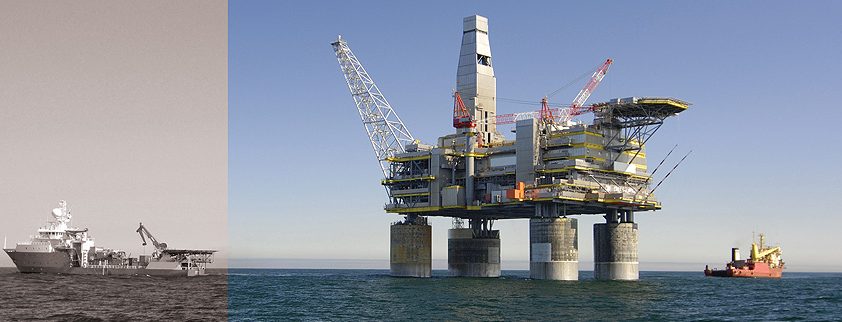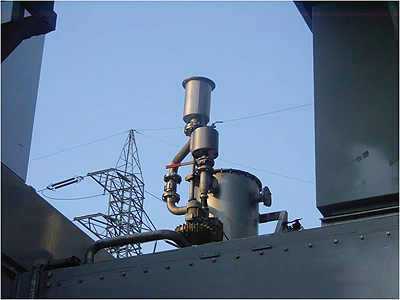
IPPS
The power of ingenuity
Having doubled its turnover between 2007 and 2008, IPPS has proved itself as a consummate supplier of services that aim to improve the availability and performance of gas turbines within the land and offshore industries.
By continually investing in R&D to develop products for use on gas turbine auxiliaries, its product engineering and design work is based on best practice and the latest technology, never failing to consider compliance with real workloads and operating conditions.
As a business at the centre of an alliance ring of partners – with the main partner in development and manufacturing being a Norwegian company called ERC AS – IPPS is able to serve any system on a gas turbine installation and its services cover numerous disciplines.
European Oil & Gas Magazine spoke to IPPS’ managing director, Knuth Jahr, to find out what the company has been concentrating on recently. “Firstly, there’s our air inlet cooling system for offshore installed mechanical-drive gas turbines,” he begins. “Air inlet cooling is a well-known concept, but one which has only previously been used for onshore installations. For offshore installations, we have developed and patented a concept where we can install a cooling system when the gas turbine is in operation, so there need only be one or two days downtime before hooking it up.”
By minimising downtime, which often carries with it significant economic consequences, IPPS poses an attractive solution and becomes somewhat of a pioneer, as Knuth explains: “This is the first method for carrying this out offshore and we have worked on it for two years. We’re operating with an oil company in Norway, and we’re now in the engineering phase to build a prototype that will be installed on a platform for a test period of about a year. We’ll be targeting the global market as it can be used for any gas turbine installed offshore requiring more power.”
Elaborating on the new system and another of its benefits, Knuth reveals more about IPPS’ recent activities: “While the inlet cooling system’s primary purpose is to increase shaft power of the turbine, an added bonus is the subsequent lower level of CO2 pollution produced by the gas turbine. We’re aiming this system towards mechanical-drive gas turbines, meaning gas compressors, and when you compress gas and inject it down to the drilling hole, it can increase oil production. It serves the oil and gas production process, where you need more shaft power. We inject mineral water together with the fuel, which reduces NOx production and benefits offshore installed gas turbines. This hasn’t previously been achieved with offshore  units.”
units.”
Another of IPPS’ new product developments relates to off-and-onshore installed gas turbines and is called the Air Oil Separator. Knuth explains how it works: “A gas turbine’s bearings are located in a bearing sump, which has to be ventilated during operation. Air that is discharged from the sump contains oil mist, which is a problem for personnel working on the platform. The mist also reduces the turbine’s performance when it’s sucked into the turbine’s air filters. While there is a separator on the engine, its performance is not good enough to comply with new regulations, so we have developed and patented a stage two air/oil separator to install onto each gas turbine to reduce oil mist emissions.
“The same separator is also used on the driven turbo compressor, which has an oil system that requires ventilation. There are certain requirements for milligrams per cubic metre, and we have carried out performance tests to demonstrate that our separator produces an amount that falls far below requirements in terms of discharging oil mist to areas where people are working for up to 12 hours. Owing to this, the market has shown a lot of interest and we’ve sold many separators to oil companies. In respect of taking this product further, we will always look into the possibility of further reducing emissions.”
Clearly, IPPS’ commitment to R&D helps it to stand out in the marketplace, as product development is the cornerstone of a successfully evolving business. Considering the company’s other qualities, Knuth asserts: “Our strengths lie in the quality of the gas turbine’s design and packaging, and our specialist knowledge of the areas in which we operate. There are very few companies in the Norwegian market that work in the way we do, and we have the ability to suit our knowledge precisely to customers’ needs – as well as to the gas turbine market.”
The market, fortunately, has not been significantly affected by the global recession and, as companies have made money by installing IPPS’ products, the organisation can reasonably expect there to be an ongoing demand for its offering in the coming months. Indeed, Knuth believes IPPS has a very healthy future. “We have already filled our order book for 2010 and we’re working on installations to be sold in 2011 and 2012,” he concludes. “Everything looks very promising for us and I’m pleased with how the business is progressing.”
IPPS (Inventa Power Package Services AS)
Services: Gas turbine products and services